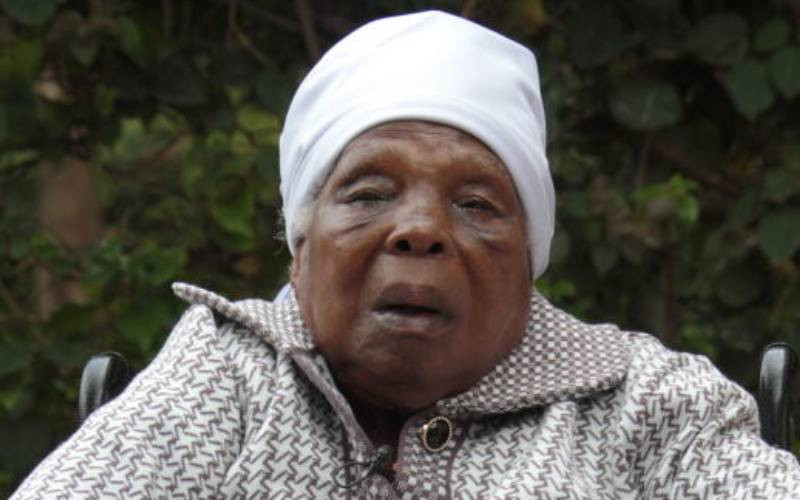×
The Standard e-Paper
Home To Bold Columnists

Mukami Kimathi outlived two British kings, a queen as well as three presidents but when she ultimately breathed her last on Friday aged 93, a rare flame of passion and patriotism was extinguished.
That flame had defiantly flickered throughout Kenya's most tumultuous period fluttering over waves of betrayal, prejudices and oppression and was the fuel that inspired the quest for Kenya's freedom. Mukami represented thousands of peasant women who were brutalised by a society that had normalised their discrimination.